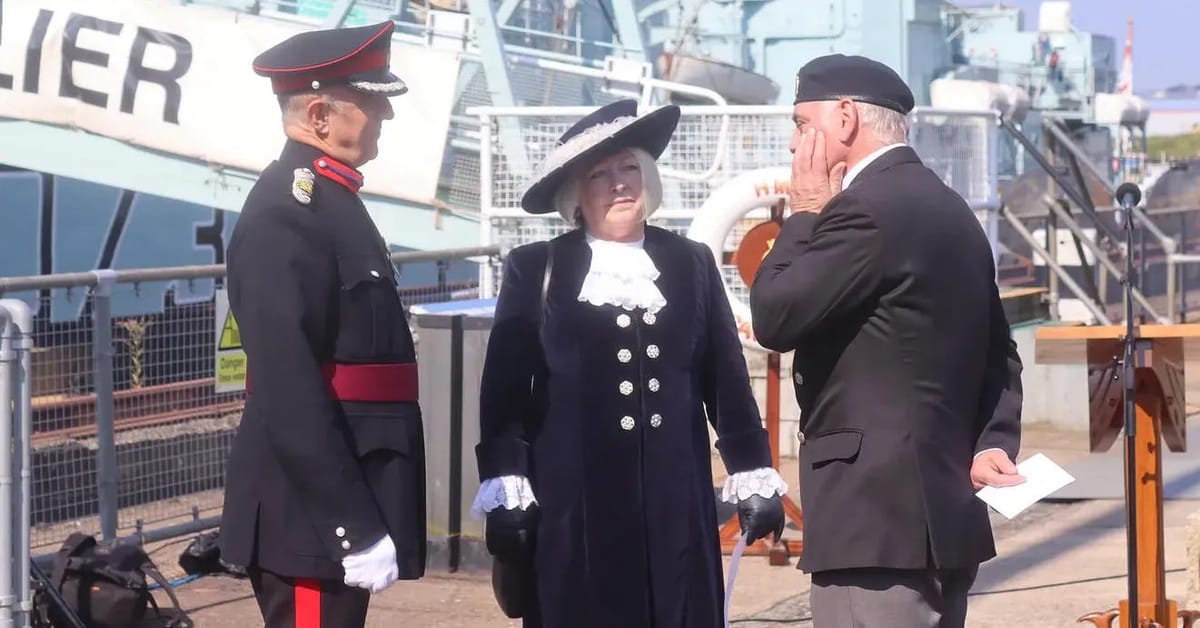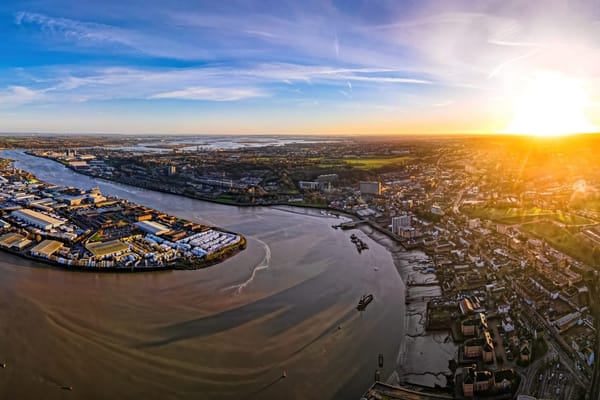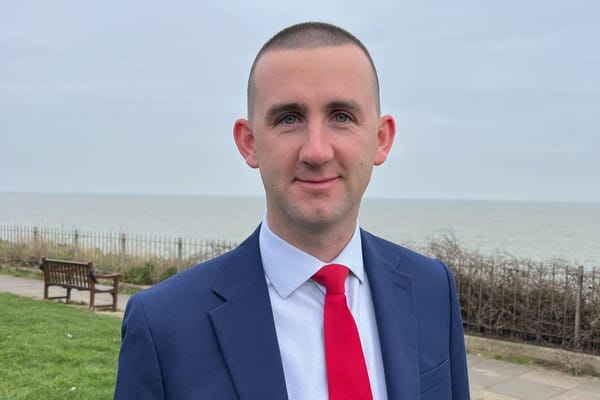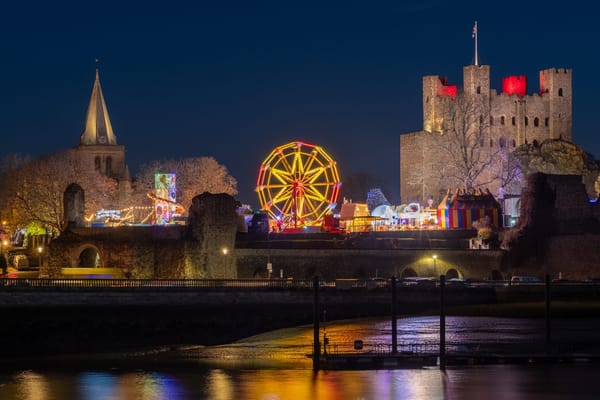"Most people don't know about it"
What Steven asked Gill Fargher, the High Sheriff of Kent

The High Sheriff of Kent is a voluntary ceremonial role with a thousand year legacy. Steven met Dr Gill Fargher, the current holder of the role, to discuss how she was selected for the role, returning to being a GP during covid, why they went to Antarctica, her multiple volunteering roles, and lots more.

What role are you currently undertaking for Kent and Medway?
I have five voluntary roles ordinarily, but the current principal role is a sixth voluntary role, which is High Sheriff of Kent. So not Medway specifically, but for the whole of Kent. Obviously, I'm a resident of Medway. I've lived in Medway for a long time. I was a partner in my practice for 32 years, so I know Medway fairly well.
How long do you do the role for?
The High Sheriff role is a non-political royal appointment for a single year.
How would you describe the role?
Most people don't know about it. I didn't know about it until about 12 years ago. It's the oldest continuous Crown appointment. It's existed for approximately a thousand years. According to some sources, and history varies as you will know well, Kent is considered to have had the first High Sheriff. The original ‘Shire Reeves’ were guardians of the Shires. In days gone by when life was short and violent and travel was very difficult, we had no judges, no magistrates, no police, no inland revenue. The monarch, usually a king, created the role of Sheriff for each county. The Sheriff had enormous power and enormous responsibility. He was responsible for collecting tax and administering justice on occasions. It was a tough role.
Now that we have all these other statutory agencies that didn't exist in those days, the role is largely ceremonial. It is enshrined in law, and it is still the responsibility of the King to appoint. I have a Royal Warrant. The process by which you're appointed also hasn't really changed in recent times. There is a nomination panel in each county, and they approach people who they think might be appropriate to undertake the role. The only two rules are that you own a property in the county and that you are of good standing, which applies to a lot of people. Because it's a voluntary role and because it does demand quite a lot of time, also because there is no public money for this role, anything that you spend, from having your court dress made to undertaking any hospitality or arranging events, has to be your own expense. So that is a challenge. Not everyone has time to do it, or not everyone would want to do it because, as part of this role, you are on show quite a lot, and it demands quite a lot of speech-making.
How were you approached for the role?
I was approached by the nomination committee that exists in Kent, which is the normal route.
How were they aware of you?
I think they were aware of me because some of the members of that committee knew about me. At that time, I was still working as a GP, but I was undertaking quite a lot of voluntary work and starting some charitable work as well. I retired as a GP in 2019, and at that time, I had four of the five roles I have now. I did go back when we had covid to my former practice and helped with the vaccination effort because doctors were wanted to supervise vaccination clinics in the early days of the vaccine. But then I retired again and continued with my normal voluntary roles. I was approached by the nomination panel, submitted a CV, met a few of them in different situations. The process is then that the appointment is approved by the Lord Lieutenant of the county, then the Privy Council, and ultimately the King.
Did you get to meet the King as part of that?
I haven't met the King. Would be lovely, but obviously, he's had his own health issues to deal with.
As the High Sheriff, do you have powers to arrest people?
No. Our role is now largely ceremonial. I do retain a role which is relevant currently and that is the Returning Officer for Kent. When we had the General Election I went to a local count. Bearing in mind that I had to go there at the early hours of the morning and observe the count. I went in court dress, and then I declared the result for Chatham and Aylesford on national TV in my velvet coat and hat at 4.30am on the morning of Friday the 6th of July, reminding yourself that you've volunteered for this.
The remit follows from the ancient role of Sheriff and High Sheriff, which is to support law and order, so that is still the remit of the modern High Sheriff. However, there are other elements to the role. Upholding and enhancing the role of High Sheriff is supporting the Lord Lieutenant, supporting the royal family, supporting the judiciary and Kent Police. How I see the support is going to find out what they do. I sit with judges on the bench and observe justice being administered. I think for professionals in many of these roles, life is tough. They're tough roles with huge responsibility, and as in all aspects of public life, funding is not limitless, and that brings challenges. It's about talking to them, seeing what they do, understanding what they do and supporting them by recognising what they're doing and the importance of the role. The High Sheriff cannot support people in a financial way. We bring no resource but recognition and acknowledgement and saying thank you is actually important. I do the same with Kent Police. A lot of the work undertaken by Kent Police isn't seen by the general public. I'm very familiar with the fact that people are much more ready to complain about something than they are to praise whoever it is that may deserve praise, and Kent Police, like other public services, can be faced with that issue. I go out with Kent Police and the work they are undertaking is astonishing.




